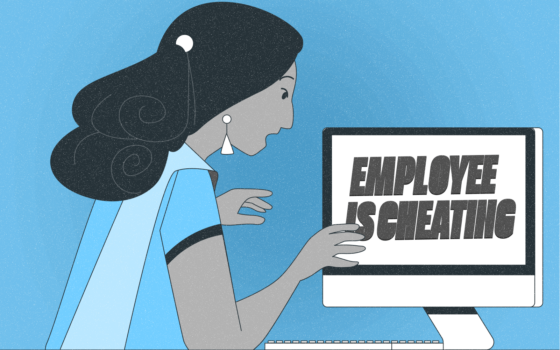Culture Interview
A culture interview, also known as a cultural fit interview, is a crucial component of the hiring process that aims to assess how well a candidate aligns with an organization's values, work environment, and overall company culture. This type of interview goes beyond evaluating a candidate's technical skills and qualifications, focusing instead on their personality, work style, and ability to thrive within the company's unique atmosphere.
The primary purpose of a culture interview is to ensure that both the candidate and the organization are a good match for each other. It helps employers identify individuals who not only possess the necessary skills but also share the company's core values and can contribute positively to the existing team dynamic. For candidates, it provides an opportunity to gain insights into the company's culture and determine if it aligns with their own preferences and career goals.
Key Aspects of Culture Interviews:
- Values Assessment: Interviewers often ask questions to gauge how well a candidate's personal values align with the company's core values. This may include scenarios or hypothetical situations to understand how the candidate would handle certain situations.
- Work Style Compatibility: Questions about preferred work environments, collaboration methods, and communication styles help determine if the candidate's approach matches the company's way of operating.
- Team Dynamics: Assessing how well a candidate might integrate with existing team members is crucial. This may involve questions about past experiences working in teams or handling conflicts.
- Adaptability: Culture interviews often explore a candidate's ability to adapt to new environments, embrace change, and contribute to the company's growth and evolution.
- Long-term Fit: Employers use these interviews to evaluate whether a candidate has the potential for long-term success within the organization, considering factors like career aspirations and growth opportunities.
Conducting Effective Culture Interviews:
To ensure a successful culture interview, organizations should consider the following best practices:
- Define Company Culture: Before conducting interviews, it's essential to have a clear understanding of the company's culture, values, and mission. This provides a framework for evaluating candidates.
- Develop Targeted Questions: Create a set of questions that specifically address cultural aspects, such as teamwork, communication preferences, and problem-solving approaches.
- Involve Multiple Interviewers: Having different team members participate in the culture interview process can provide diverse perspectives and a more comprehensive assessment of the candidate's fit.
- Be Transparent: Openly share information about the company's culture, work environment, and expectations to allow candidates to make informed decisions.
- Avoid Bias: Be mindful of unconscious biases that may influence the assessment of cultural fit. Focus on objective criteria rather than subjective impressions.
- Balance Skills and Culture: While cultural fit is important, it should not overshadow a candidate's qualifications and skills. Strive for a balance between technical competence and cultural alignment.
Common Culture Interview Questions:
- "Describe your ideal work environment. How does it compare to our company's culture?"
- "Can you share an example of a time when you had to adapt to a new work culture? How did you handle it?"
- "What motivates you to perform your best at work?"
- "How do you handle conflicts or disagreements with coworkers?"
- "What type of management style do you prefer, and why?"
- "How do you stay organized and manage your time when working on multiple projects?"
- "Describe a situation where you had to work with a diverse team. What challenges did you face, and how did you overcome them?"
- "What role do you typically play in a team setting?"
- "How do you handle constructive criticism or feedback?"
- "What are your long-term career goals, and how do you see them aligning with our company's mission?"
Benefits of Culture Interviews:
- Improved Employee Retention: Hiring candidates who align well with the company culture can lead to higher job satisfaction and reduced turnover rates.
- Enhanced Team Cohesion: Employees who share similar values and work styles are more likely to collaborate effectively and maintain positive relationships.
- Increased Productivity: When employees feel comfortable in their work environment, they are more likely to be engaged and productive.
- Stronger Employer Brand: A consistent company culture, reinforced through hiring practices, can strengthen the organization's reputation and attract like-minded talent.
- Reduced Hiring Costs: By identifying cultural mismatches early in the hiring process, companies can avoid costly hiring mistakes and subsequent turnover.
Challenges and Considerations:
While culture interviews offer numerous benefits, there are also potential pitfalls to be aware of:
- Homogeneity Risk: Overemphasis on cultural fit may lead to a lack of diversity within the organization, limiting creativity and innovation.
- Subjectivity: Assessing cultural fit can be subjective, making it challenging to maintain consistency across different interviewers and candidates.
- Legal Considerations: Care must be taken to ensure that culture-based hiring decisions do not inadvertently discriminate against protected groups.
- Evolving Culture: Company cultures are not static, and what may be considered a good fit today might change as the organization grows and evolves.
- Overvaluing Similarity: There's a risk of favoring candidates who are similar to existing employees, potentially overlooking valuable diverse perspectives.
Implementing Culture Interviews Effectively:
To maximize the benefits of culture interviews while mitigating potential drawbacks, organizations should consider the following strategies:
- Standardize the Process: Develop a structured approach to culture interviews, including a set of core questions and evaluation criteria to ensure consistency.
- Train Interviewers: Provide training to interviewers on how to conduct culture interviews effectively, recognize bias, and make objective assessments.
- Use Behavioral Questions: Frame questions in a way that elicits specific examples of past behavior, which can be more indicative of future performance than hypothetical scenarios.
- Incorporate Diverse Perspectives: Include team members from various backgrounds and departments in the interview process to gain a well-rounded assessment of candidates.
- Balance Cultural Fit with Cultural Add: Consider not only how well a candidate fits the existing culture but also what unique perspectives or skills they can bring to enhance it.
- Regularly Review and Update: Periodically reassess the culture interview process to ensure it remains aligned with the company's evolving culture and goals.
- Provide Candidate Feedback: Offer constructive feedback to candidates, regardless of the outcome, to help them understand the decision and improve their future prospects.
Conclusion:
Culture interviews play a vital role in building strong, cohesive teams and fostering a positive work environment. When conducted thoughtfully and ethically, they can lead to better hiring decisions, improved employee satisfaction, and long-term organizational success. However, it's crucial to approach culture interviews with an awareness of potential biases and a commitment to diversity and inclusion.
By striking a balance between assessing cultural fit and valuing diverse perspectives, organizations can create a vibrant, dynamic workplace that attracts and retains top talent while driving innovation and growth. As the business landscape continues to evolve, the ability to effectively evaluate cultural alignment will remain a key competitive advantage for companies seeking to build high-performing, engaged teams in an increasingly complex and diverse work environment.


